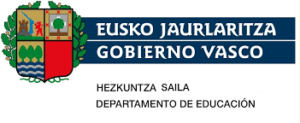BC3, through the BALELUR Project, will participate in mountaineer Alex Txikon’s WinterTopAppeal expedition to scale the K2 summit. The project spearheaded by BC3 seeks to exploit publicity from the expedition to underscore the problem of global warming through a series of pioneering initiatives, such as the use of solar panels and windmills to transmit the message that even an expedition must be sensitive to the problems of climate change. On its end, the multidisciplinary BALELUR project will facilitate ascertaining the effects of climate change on the region and raising awareness about them by working towards three objectives.
- Evaluate how nature’s contributions to the human welfare of mountain communities in remote areas are being affected by climate change through changing water systems, Glacier Lake Outburst Floods (GLOFs) and landslides, and identifying adaptation practices that have been implemented.
- Determine the recent climate changes occurring in the glaciers and the higher peaks of Karakoram, including an estimate of the human (“anthropogenic”) contribution to such changes. Track the presence of black carbon and other aerosols transported to the region from afar, as well as estimate recent precipitation history through water isotopes.
- Evaluate the effectiveness of various climate change communication strategies used on social media platforms.
For the purpose, a BC3 researcher will be travelling together with Alex Txikon’s team to conduct the fieldwork, including interviews, surveys, geophysical measurements and snow and soil sample collection at different heights.
Mountains are one of the ecosystems most affected by climate change. There are still many gaps in our understanding of climate change impact on nature and the contributions of nature to human life and well-being, especially in remote and vulnerable mountain communities. Climate change in mountain regions is diverse and often extreme, and its impact is amplified by the barriers to adaptation faced by these communities. At the same time, mountain tourism is becoming a challenge for these areas, raising new problems related to garbage disposal and threatening the cultural identity of communities.
The BALELUR project is an opportunity to combine climate sciences and social sciences in order to better understand (i) how remote mountain communities are affected by and adapt to climate risks and (ii) how local glacier ecosystems evolve. The joint science-mountaineering expedition is also an opportunity for snow sample collection at high altitude and for testing communication strategies about climate change.
Surveying local communities and In-depth Interviews with local stakeholders
A series of interviews and questionnaires will be conducted among the local actors of the K2 region in order to understand how climate changes are perceived and how these affect nature’s contributions to human life and well-being in this population. We will also assess which adaptation measures are or could be implemented in response to climate change.
Glaciology on Baltoro Glacier and K2 in Karakoram
The Karakoram Anomaly refers to the anomalous cooling experienced in this mountain range in summer, which is quite different from the warming generally observed in the rest of the Himalayas. It is believed that this happens because of an exclusive atmospheric circulation system active in the region (Forsythe et al. 2017). In order to improve knowledge about this interesting climate change phenomenon, we propose a series of potential studies.
The proposed studies can be classified according to two main tasks.
Snow sampling on and around the K2
This activity consists of collecting snow samples for the subsequent chemical analysis of isotopes, aerosols, and (more interestingly) black carbon. Samples will be taken from the Baltoro Glacier around the K2 Base Camp and from the K2 peak itself. The chemical analyses will be performed in collaboration with leading international laboratories in this type of analysis.
Geophysical measurements on the Baltoro glacier
Geopositioning, radiative and geomorphological measurements of the Baltoro Glacier will contribute to updating the results of previous studies. At over 60 km in length, the Baltoro glacier is one of the largest valley glaciers in the world and has been the subject of numerous studies. Baltoro is a debris-covered glacier, so its mass balance (loss/gain of ice) also depends on the properties of debris. We plan to study the interactions between ice and the debris in order to better understand the sensitivity of this glacier to climate change.
Collaboration between mountaineers and scientists is key to accessing snow sample collection at high altitudes and ascertaining the impact of global climate change in these places. Thanks to this project, BC3 seeks to contribute to the knowledge of the causes and consequences of climate change on this type of highly vulnerable ecosystem.





